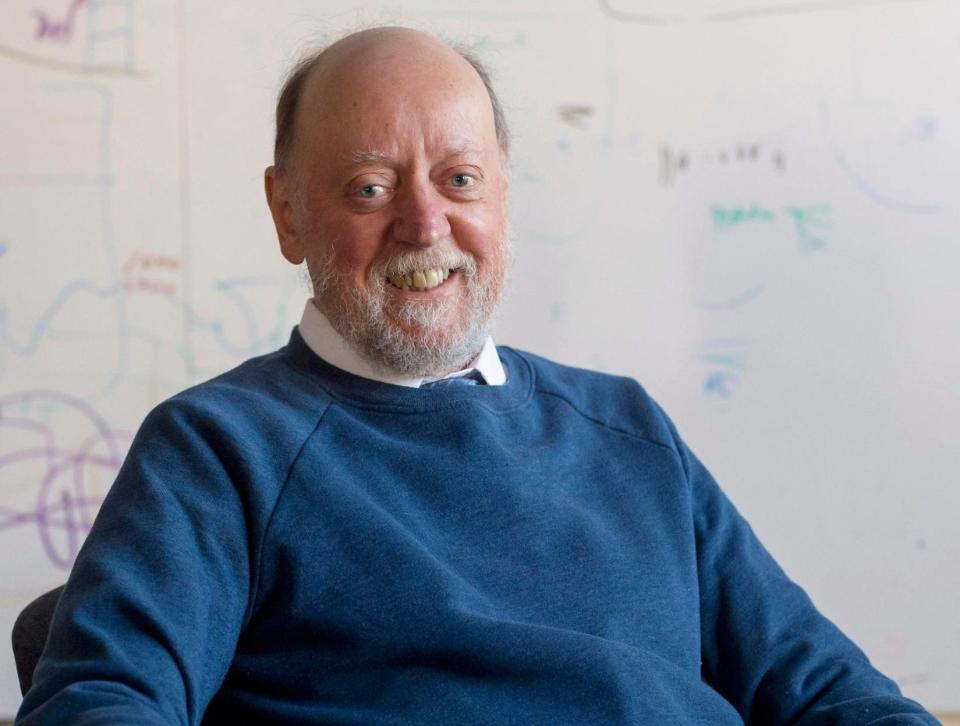Supercomputer software subject of award winner's FORNL talk
“High-Performance Computing and Future Requirements” is the title of the talk that Jack Dongarra will give at noon Tuesday, June 14, at the UT Resource Center, 1201 Oak Ridge Turnpike.
Dongarra is this year’s winner of the A.M. Turing Award from the Association of Computing Machinery (ACM), the equivalent of the Nobel Prize in computing.

He has joint appointments with the University of Tennessee, Oak Ridge National Laboratory and the University of Manchester. His talk, which is sponsored by Friends of ORNL, will also be available on Zoom. He will likely mention Frontier, the exascale machine at ORNL that is the fastest supercomputer in the world at a billion times a billion (quintillion) arithmetic calculations per second.
To view the virtual noon lecture, click on the talk title on the homepage of the www.fornl.org website and click on the Zoom link near the top of the page describing the lecture. At the in-person meeting, attendees may bring their own food to eat but are asked to wear a mask when not eating or drinking.
Dongarra stated that he will “examine how high-performance computing has changed over the last 10 years and what future trends will likely be. These changes have had and will continue to have a major impact on our numerical scientific software.
"A new generation of software libraries and algorithms are needed for the effective and reliable use of dynamic, distributed and parallel environments. Some of the software and algorithm challenges have already been met. Examples are management of communication and memory hierarchies through a combination of compile-time and run-time techniques.
"However, the increased scale of computation, depth of memory hierarchies, range of latencies and increased run-time environment variability will make solving these problems much harder.”
Dongarra is recipient of the Turing Award “for pioneering contributions to numerical algorithms and software that have driven decades of extraordinary progress in computing performance and applications.”
He holds an appointment as University Distinguished Professor of Computer Science in the Electrical Engineering and Computer Science Department at UT-Knoxville, as well as the title of Distinguished Research Staff in the Computer Science and Mathematics Division at ORNL.
He is a Turing Fellow at Manchester University and an adjunct professor in the Computer Science Department at Rice University. He is the director of both UT’s Innovative Computing Laboratory and UT’s Center for Information Technology Research, which coordinates and facilitates information technology research efforts at the university.
He received a B.S. degree in mathematics from Chicago State University in 1972, an M.S. degree in computer science from the Illinois Institute of Technology in 1973 and a Ph.D. in applied mathematics from the University of New Mexico in 1980. From 1980 to 1989, he worked at Argonne National Laboratory where he became a senior scientist.
Dongarra specializes in numerical algorithms in linear algebra, parallel computing, the use of advanced computer architectures, programming methodology and tools for parallel computers.
Other awards he received include the Institute of Electrical and Electronics Engineers (IEEE) Sid Fernbach Award (2004), the first IEEE Medal of Excellence in Scalable Computing (2008), the first Series in Applied Mathematics (SIAM) Special Interest Group on Supercomputing’s Award for Career Achievement (2010), the IEEE Charles Babbage Award (2011), the ACM/IEEE Ken Kennedy Award (2013), the ACM/SIAM Computational Science and Engineering Prize (2019) and the IEEE-CS Computer Pioneer Award (2020).
He is a fellow of the American Association for the Advancement of Science, ACM, IEEE, and SIAM, a foreign member of the British Royal Society and a member of the National Academy of Engineering.
This article originally appeared on Oakridger: Supercomputer software subject of award winner's FORNL talk

